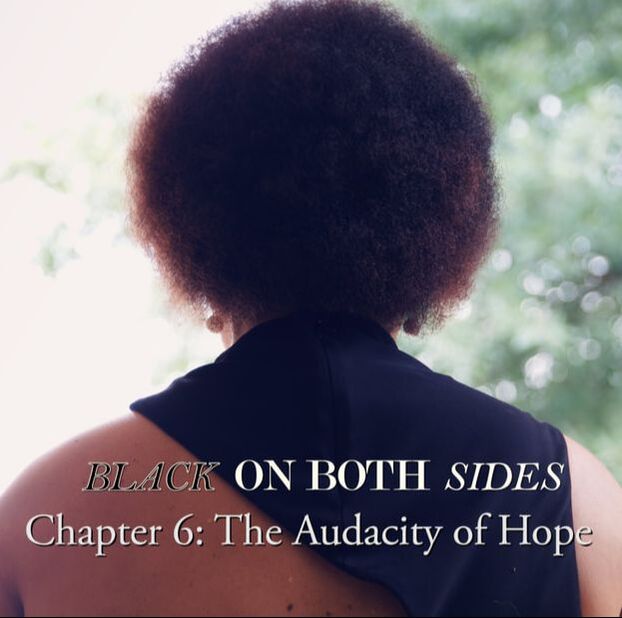|
directed by:
Alonge Hawes written by: Alonge Hawes genre: Drama |
Note from the writer. The review of the first four episodes can be found by clicking here, and the episode five review can be found by clicking here. Pushing on through the season finds episode six focusing on a podcast from Henry Gil Scott Heron, never just Henry for the record. The podcast features two guests who have very strong; and very different world views of the black community. Specifically the roles and perceived roles of men and women. The debate rages on and as the episode flies by, Henry Gil Scott Heron essentially becomes background. The mark of a good podcast right? By the ending however, it's clear that both combatants have a very similar goal, the only difference is they are pushing for the same middle-ground from opposite ends.
There are a couple of cut-ins that go beyond the podcast, showing some very interesting couples when you consider the nature of the podcast itself. Overall however, episode six is pretty much just said podcast and as interesting, especially that last bit, is and becomes... that's pretty much the entire episode. A soapbox of sorts with nothing much else added in. This is also one of the shorter episodes of the series, clocking in at about seventeen minutes. And that's just it. "The Audacity of Hope" felt more like filler than an actual episode. There really is no continuation of the "Black On Both Sides" story. Kind of like "The Walking Dead" has that commentary show where they just talk about what has happened. Episode six is a nice little insert and does happen within Alonge Hawes world cannon, but it feels like a completely separate entity. A show within a show. That's not saying it wasn't entertaining to watch, only that if a person decided to do so, they could completely skip the episode and miss absolutely nothing. And yet it was an interesting episode to watch none the less, climaxing during the last minute or so.
To sum things up? This episode didn't push the story forward as I had hoped, but by no means does it ever feel it doesn't belong. On the plus side, without being even a little bit coy, this episode cements the general message of "Black On Both Sides" in a big way. Maybe not the exact overall message, but rather the pepper added into the soup. What's even more interesting is that this episode could be watched as a stand-alone chapter. Even if you've never seen the show. The podcast may be fiction, but the views and belief-system is not. |
Copyright © 2009 - 2024 - IndyRed.com ™



